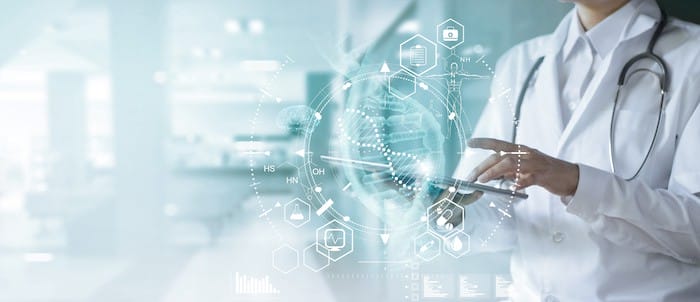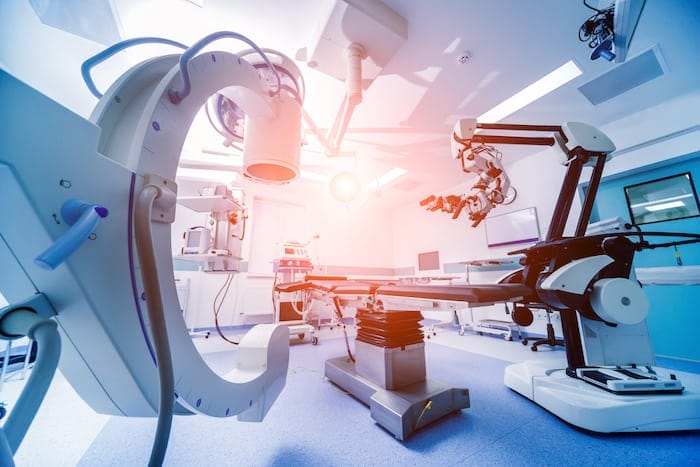The medical industry has genuinely evolved because of the technological advancements that doctors, scientists, IT specialists, researchers, and other significant entities have jointly developed. Many patients and healthcare facilities benefit from advanced healthcare procedures, devices, workflows, and equipment, thanks to amazing technological advancements.
In this article, you’ll learn about the best technological advancements in the medical industry today.
- Healthcare Documents Scanners
One of the best technological advancements in the medical industry includes healthcare document scanners. This state-of-the-art device phases out data manually entered on paper. Healthcare document scanners promote productivity by providing easy-to-access information vital to making day-to-day decisions and processes, anywhere and anytime.
Here are the good-to-know things about healthcare documents scanners:
- Versatile Capture Software: Healthcare document scanners allow capturing and accessing information at the office or fieldwork.
- Capture Documents On-the-Go: Healthcare document scanners enable users to enter documents on the same workflow like they’re scanned in the office.
- Digitized Paper From Anywhere: Healthcare document scanners empower mobile workers by giving paper document direct paths to get into digital systems quicker.
- Distribute Vital Information: Healthcare document scanners optimize mail and important documents for smoother communication flow to remote employees and customers.
- Robotics
Robotics in healthcare is used in diagnosis and surgery, accelerating digital transformation in the healthcare industry. With robotics, robots can be used in interacting with infected patients safely. Also, a dog-like robot is used as a COVID social distancing patrol, screening patients by taking vital measurements, such as temperature and respiratory rate.
Take a look at these advantages of robotics in the medical industry:
- Prevents the spread of infection because of human contact
- Reduces human error in the operating room
- Assists patients following social distancing and other health and safety protocols during the new normal
- Obtains vital signs accurately
- Saves time and energy for medical personnel
- Telemedicine
Telemedicine or telehealth refers to the healthcare practice of examining, diagnosing, and treating patients remotely through digital platforms. Users need a reliable telehealth app or communication app, Internet connection, and Internet-capable devices to take advantage of telemedicine.
The novel coronavirus 2019 or COVID-19 made telemedicine in-demand overnight. According to an IT expert, the current pandemic forces organizations to embrace telemedicine, accelerating patient care delivery. Many healthcare providers are supporting and investing in this technology, helping reduce hospital traffic and the spread of the virus.
Check the following benefits of telemedicine:
- Diagnoses and treats patients remotely
- Doctors can provide online prescriptions
- Connects healthcare providers and patients remotely from anywhere
- Reduces clinic queues, hospital traffic, and waiting times
- Improves patient care delivery in suburban, rural, and other remote areas

- Precision Medicine
It’s a form of medicine using the patient’s information, such as proteins or genes, to prevent, assess, diagnose, and treat diseases. Precision medicine is highly recommended for cancer patients, using specific tumor information in making a diagnosis, treatment planning, monitoring, and making a prognosis.
- Healthcare Wearable Technology
According to a trusted source, about 80% of consumers are interested in wearing fitness technology. Wearable healthcare technology refers to devices used in monitoring and managing health and fitness, which include the following:
- Smartwatches
- Wearable ECG monitors
- Wearable blood pressure monitors
- Biosensors
- Medical Artificial Intelligence
Artificial intelligence (AI) uses computer programs to perform clinical diagnosis and suggest treatment. This technology is capable of detecting relationships in a data set, widely used in different clinical situations for diagnosing, treating, and predicting the results.
- Virtual Reality
Virtual reality (VR) elevates the learning and teaching experience in the field of medicine to a higher, newer level. This technological advancement uses computer technology to simulate a real environment, such as a hospital setting.
Check the following ways VR can be beneficial in medicine:
- VR Learning Via Live Stream: With virtual reality, doctors can livestream operations anywhere in the world using VR camera. Medical students don’t need to be physically in the hospital to learn clinical concepts.
- VR Surgical Training: VR revolutionizes medical education, allowing medical students to be in the operating room using VR goggles.
- Patient Care: VR relaxes patients who’ll go through a medical procedure through guided imagery, such as images of beautiful landscapes and nature during the procedure.
Conclusion
Healthcare document scanners, wearable technology, precision medicine, virtual reality, and robotics are the medical industry’s best technological advancements. They make patient care delivery a lot easier, faster, more effective, and more efficient than ever before. Whether you have a healthcare business, or you’re a healthcare professional or an industry leader, using advanced technological medical devices can help you attain your goals.
The Editorial Team at Healthcare Business Today is made up of skilled healthcare writers and experts, led by our managing editor, Daniel Casciato, who has over 25 years of experience in healthcare writing. Since 1998, we have produced compelling and informative content for numerous publications, establishing ourselves as a trusted resource for health and wellness information. We offer readers access to fresh health, medicine, science, and technology developments and the latest in patient news, emphasizing how these developments affect our lives.








